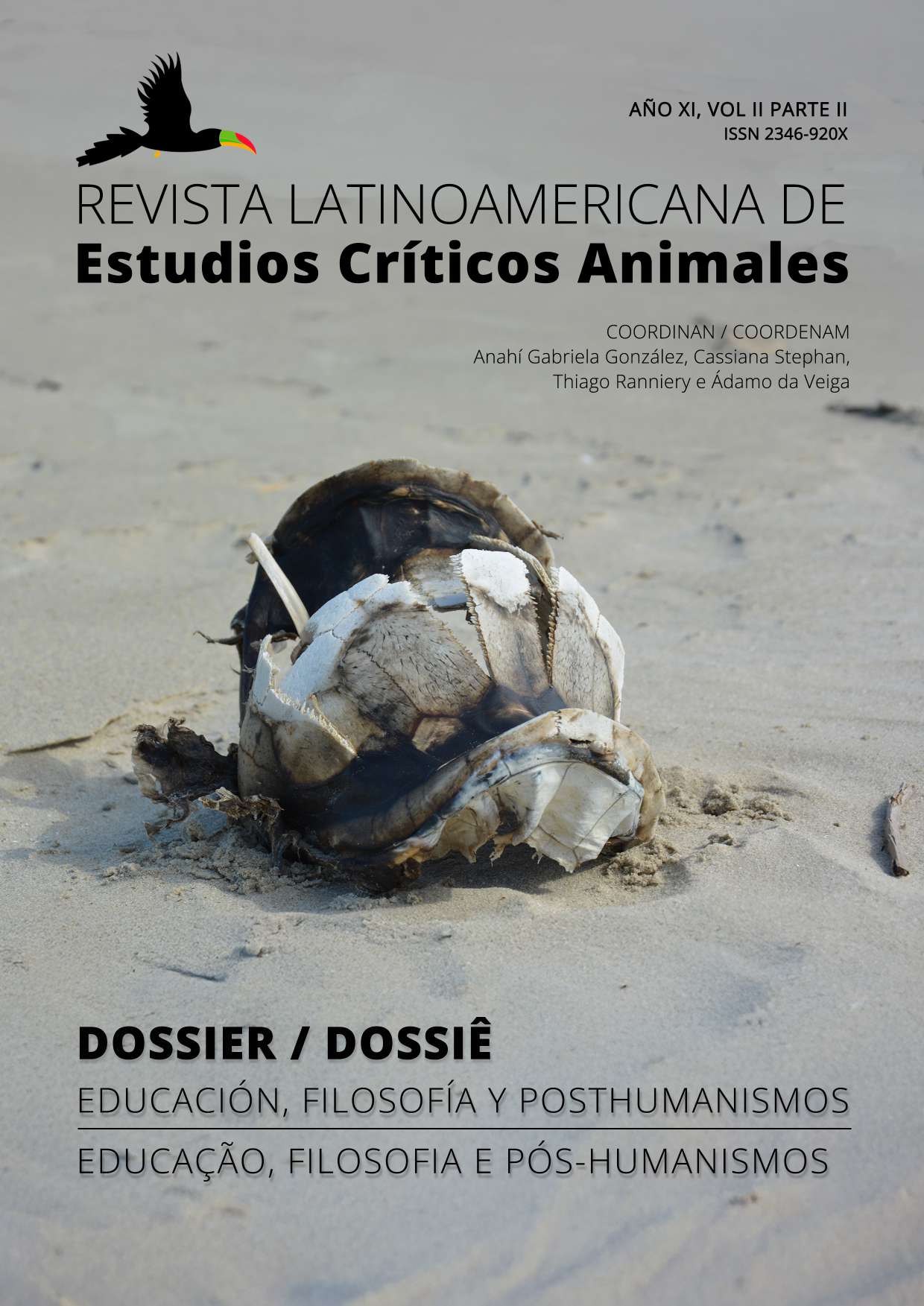Gustavo Yañez González. “Ontology is a Police : Devaluation and Subjugation of the Animal”
Keywords:
ontology, machine, biopoliticsAbstract
The book La Ontología es una Policía: Devaluar y someter al animal, by the Chilean philosopher-veterinarian Gustavo Yañez González, is a perfect introduction to the animalistic problematic. Perfect because it integrates the different issues pertinent to the animal question, and does so pedagogically through an easily accessible, mobilizing and profound discursiveness, without neglecting epistemic rigor. In the development, Derridean, Agambenian, Von Uexküllian conceptions that hammer the humanist tradition are synthesized: here Aristotle, M. Heidegger and I. Kant are specifically worked. The purpose is to make possible new modes and worlds of coexistence with the "other" with respect to this police device: animal modes. Because animality is far from being inappropriate for us; it is merely foreign to our humanized ways of experiencing the world.
References
Heidegger, M. (2007), Los Conceptos Fundamentales de la Metafísica: Mundo, Finitud, Soledad, Alianza Editorial.
Calarco, M. (2013), “Ser para la carne: Antropocentrismo, indistinción, veganismo”, Instantes y Azares Nº13.
Derrida, J. (2010), Seminario: La Bestia y el Soberano Volumen I (2001-2002), Manantial.
Yañez González, G. (2018), La Ontología es una Policía: Devaluar y someter al animal, Editorial Latinoamericana Especializada en Estudios Críticos Animales.
Downloads
Published
Issue
Section
License
Copyright (c) 2025 Revista Latinoamericana de Estudios Críticos Animales

This work is licensed under a Creative Commons Attribution-NonCommercial-ShareAlike 4.0 International License.
La Revista Latinoamericana de Estudios Críticos Animales con ISSN 2346-920X se adhiere a las diferentes iniciativas que promueven el acceso libre al conocimiento, por lo que todos los contenidos de la misma son de acceso libre y gratuito y publicados bajo la licencia Creative Commons, que permite su difusión pero impide la alteración de la obra e incluye siempre mención al autor/a y fuente.
Es decir, una licencia de tipo Atribución-NoComercial-SinObraDerivada.
Por ello, los correos electrónicos de los autores se encontrarán a disposición de los lectores, en caso de que deseen contactarlos personalmente.




